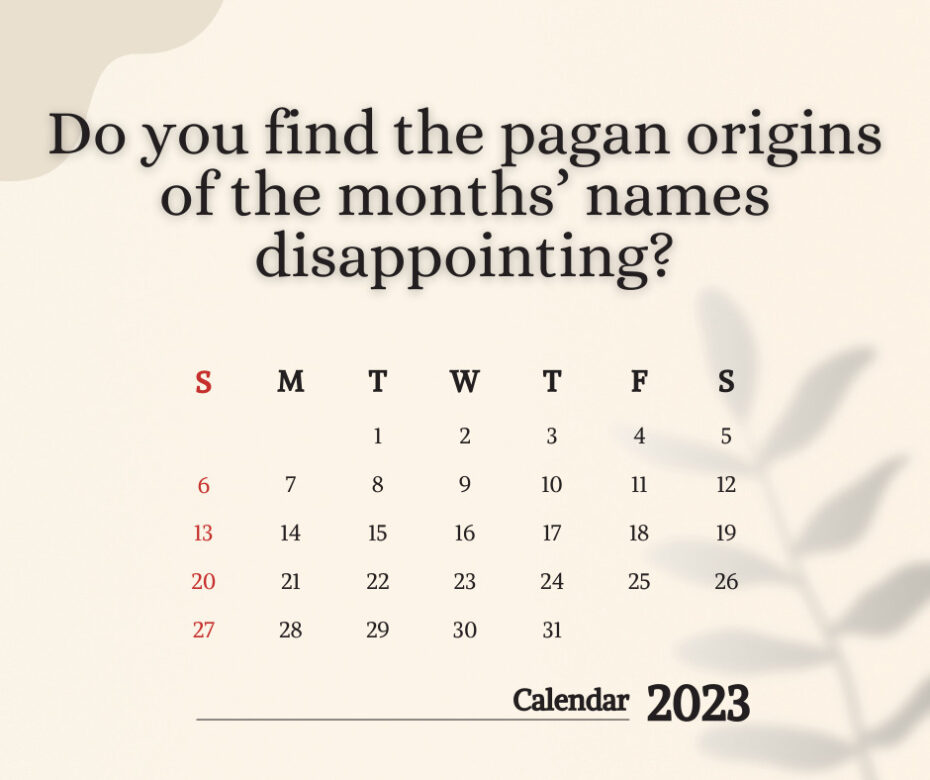Most people don’t know the origins of our names for the months.
Did you know that September, October, November, and December mean seven, eight, nine, and ten? Initially, there were ten months (initiated by Romulus around 738 BC); the last four were seven, eight, nine, and ten. March (Martius) was the first month, followed by Aprilis, Maius, Junius, Quintilis, Sextilis, September, October, November, and December. There were only 304 days in the Roman calendar: “The Romans seem to have ignored the remaining 61 days, which fell in the middle of winter” (see here).
January and February were added around 713 BC (see here).
January was named after the Roman god Janus and was the eleventh month.
February was originally the twelfth month and had only twenty-three days. Because the twelve-month calendar had fewer than 365 days, February eventually became twenty-eight days long. February was named for a time in the Roman year when sacrifices were offered for sins.i
March was named for Mars, the god of war.
April may have been named for the goddess Aphrodite.
May was named for Maia, the Greek goddess of nursing mothers and growth.
June (Junius) was named for the goddess Juno.
July was named for Julius Caesar, who, upon his death, was declared a god by the Roman government.
August was named after Augustus Caesar, who also was deified in death.
An extra month, Mercedonius (named after the paying of wages), was inserted every two or three years, in much the same way that we add a day every four years.
The Quakers were unwilling to use the names of the months due to the pagan origins of many of them. They just referred to them by number. Often the days were written with Arabic numerals and the months with Roman numerals, so the fifth day of the second month would be 5th ii or 5th 2nd month.
The current Israeli calendar, which dates back to AD 900, has these twelve months: Tishri, Cheshvan, Kislev, Tevet, Shevat, Adar, Nisan, Iyar, Sivan, Tammuz, Av, and Elul. One or two of those months were originally named for pagan gods.ii
Of course, 99% of people today have no idea that most of the first eight months are named after pagan deities.
I’m confident that when we’re in the kingdom, we will not use modern names for the months of the year or days of the week. Whatever we use will be God-honoring.
While the Bible does not tell us the new earth’s names for the months, it does tell us that there will be twelve (Rev 22:2).
I like using numbers for the months. While this will not catch on, I use it in my daily to-do list.
__________
i It is related to the Latin root for our word fever. The Spanish word for fever is fiebre.
ii Tammuz was named after the Babylonian god Tamuz. Cheshvan might be named after the Babylonian god Marchbena, which became Marcheshvan. See here.


